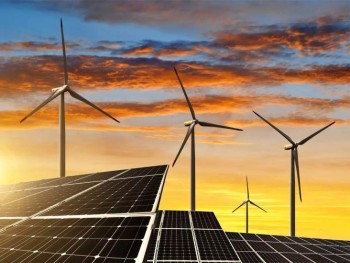Today’s global energy crisis has underscored the urgency, as well as the benefits, of an accelerated scale-up of cheaper and cleaner sources of energy. Russia’s invasion of Ukraine has sent food, energy and other commodity prices soaring, increasing the strains on African economies already hard hit by the Covid-19 pandemic. The overlapping crises are affecting many parts of Africa’s energy systems, including reversing positive trends in improving access to modern energy, with 4% more people living without electricity in 2021 than in 2019. They are also deepening financial difficulties of utilities, increasing risks of blackouts and rationing. These problems are contributing to a sharp increase in extreme poverty in sub-Saharan Africa, with the number of people affected by food crises quadrupling in some areas.
Africa is already facing more severe climate change than most other parts of the world, despite bearing the least responsibility for the problem. With nearly one-fifth of the world’s population today, Africa accounts for less than 3% of the world’s energy-related carbon dioxide (CO2) emissions to date and has the lowest emissions per capita of any region. Africans are already disproportionately experiencing the negative effects of climate change, including water stress, reduced food production, increased frequency of extreme weather events and lower economic growth – all of which are fueling mass migration and regional instability.
For all of these difficulties, the global clean energy transition holds new promise for Africa’s economic and social development. As of May 2022, countries representing more than 70% of global CO2 emissions have committed to reach net zero emissions by around mid-century. This includes 12 African countries that represent over 40% of the continent’s total CO2 emissions. These ambitions are helping set a new course for the global energy sector amid declining clean technology costs and shifting global investment. African countries – nearly all of which are party to the Paris Agreement on Climate Change – are poised to capture the technology spillovers of these changes and attract increasing flows of climate finance.
This Outlook explores a Sustainable Africa Scenario (SAS) in which Africa rides these shifting tides to achieve all African energy-related development goals on time and in full. This includes universal access to modern energy services by 2030 and the full implementation of all African climate pledges. Realizing all of these goals is a formidable undertaking. African countries need to take the lead with clear strategies and policies, while international institutions must reinforce their commitment to significantly increase their levels of support.






